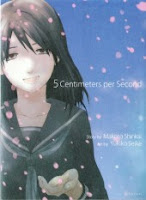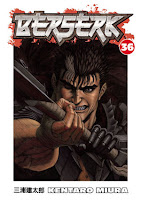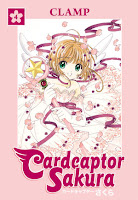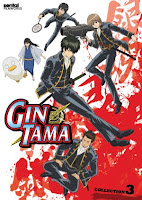My News and Reviews
Two in-depth reviews for you all this past week, one for manga and one not. First up was my review of Yukio Mishima’s breakthrough, semi-autobiographical novel Confessions of a Mask. More than six decades after it was first published, it’s still a potent work. In some ways, it reminded me a bit of Osamu Dazai’s No Longer Human. The second review was for Hiroaki Samura’s Blade of the Immortal, Volume 14: Last Blood, which is part of my Blade of the Immortal review project. Last Blood marks the end of one major story arc and the beginning of another. I’m still loving the series.
I’ve previously mentioned the Manga Out Loud podcast several times here at Experiments in Manga. The latest episode, which features a fantastic conversation about Osamu Tezuka’s Barbara with some big names in manga scholarship, will also be Manga Out Loud’s final episode. It’s my favorite manga podcast, so it saddens me greatly that the program is ending. Manga Out Loud was a fabulous show and the archives are well worth listening to even if there won’t be any new episodes added.
Both the New York Comic Con and Yaoi-Con took place over the weekend. Being stuck in the Midwest, I wasn’t able to attend either convention, but I was very excited about some of the manga license announcements to come out of the events. At NYCC, Kodansha Comics announced it will begin releasing Makoto Yukimura’s Vinland Saga in October 2013. I’ve wanted Vinland Saga to be licensed for years, so I’m thrilled that it will finally be making its way into print in English. JManga has licensed Aoi Hana by Takako Shimura, the creator of Wandering Son. I’m glad to see a digital release of Aoi Hana, but also a little sad since it means it’ll probably be less likely to be picked up for a print license now. Vertical also had some great licenses to announce at NYCC: Osamu Tezuka’s Twin Knight (the sequel to Princess Knight) and Kyoko Okazaki’s Helter Skelter.
Over on the other coast at Yaoi-Con, Viz Media’s boys’ love imprint Sublime had a slew of new licenses to announce, including a license rescue. I’m particularly excited to see more manga by Yaya Sakuragi and a series by Kano Miyamoto scheduled for 2013. And the license rescue? I had most of my bets on Youka Nitta’s Embracing Love and was delighted to be proven correct. Plans are to release the series in two-volume omnibuses beginning April 2013. I already own the five volumes of Embracing Love that were originally released in English by Central Park Media, but I’ll happily be double-dipping for this series.
Quick Takes
 5 Centimeters Per Second written by Makoto Shinkai and illustrated by Yukiko Seike. I tend to avoid most anime-to-manga adaptations since they often leave something to be desired. But after watching 5 Centimeters Per Second film, which I loved, I wanted to spend more time with the story. I’m glad I gave the manga a try because it’s a beautiful work. Seike’s art is lovely and conveys the characters’ feelings well. This is particularly important since pages and pages may pass without any dialogue at all. 5 Centimeters Per Second is a quiet and melancholy work—love and loneliness are closely tied together. The manga is a marvelous adaptation as well as being a wonderful work in its own right.
5 Centimeters Per Second written by Makoto Shinkai and illustrated by Yukiko Seike. I tend to avoid most anime-to-manga adaptations since they often leave something to be desired. But after watching 5 Centimeters Per Second film, which I loved, I wanted to spend more time with the story. I’m glad I gave the manga a try because it’s a beautiful work. Seike’s art is lovely and conveys the characters’ feelings well. This is particularly important since pages and pages may pass without any dialogue at all. 5 Centimeters Per Second is a quiet and melancholy work—love and loneliness are closely tied together. The manga is a marvelous adaptation as well as being a wonderful work in its own right.
 Berserk, Volume 36 by Kentaro Miura. Berserk is one of my favorite series and so I’m always excited when a new volume is released. I do prefer the earlier story arcs over the more recent ones, but I still love the series. Guts and his companions continue to be pursued by demonic powers. The pirate captain Bonebeard, who is no longer human, won’t let them be and he’s got plenty of monsters in tow. Monsters and demons aren’t the only things that Guts is battling against. His berserker armor, even when it can be held in check, takes a tremendous toll on him. The artwork in Berserk is great and Miura has a talent for creating creepy monster designs. The fights, which are rather chaotic, are engaging even if they can be a little difficult to follow at times.
Berserk, Volume 36 by Kentaro Miura. Berserk is one of my favorite series and so I’m always excited when a new volume is released. I do prefer the earlier story arcs over the more recent ones, but I still love the series. Guts and his companions continue to be pursued by demonic powers. The pirate captain Bonebeard, who is no longer human, won’t let them be and he’s got plenty of monsters in tow. Monsters and demons aren’t the only things that Guts is battling against. His berserker armor, even when it can be held in check, takes a tremendous toll on him. The artwork in Berserk is great and Miura has a talent for creating creepy monster designs. The fights, which are rather chaotic, are engaging even if they can be a little difficult to follow at times.
 Cardcaptor Sakura, Omnibus 4 by CLAMP. I’ve been looking forward to the release of the final omnibus of Cardcaptor Sakura a great deal. Despite the adorably sweet characters, there’s actually a significant amount of tragedy, sadness, and sacrifice in the series. But, much like Sakura’s mantra “I’m sure everything will be all right,” I ultimately find the series to be comforting. In the end, even though there is plenty that has been lost, love and friendship do win out. It’s not entirely unexpected since it’s been one of the manga’s strongest themes from the very beginning, but it does make me happy. I like the emphasis that is placed on the concept of love and how it isn’t limited to a single interpretation of what love is.
Cardcaptor Sakura, Omnibus 4 by CLAMP. I’ve been looking forward to the release of the final omnibus of Cardcaptor Sakura a great deal. Despite the adorably sweet characters, there’s actually a significant amount of tragedy, sadness, and sacrifice in the series. But, much like Sakura’s mantra “I’m sure everything will be all right,” I ultimately find the series to be comforting. In the end, even though there is plenty that has been lost, love and friendship do win out. It’s not entirely unexpected since it’s been one of the manga’s strongest themes from the very beginning, but it does make me happy. I like the emphasis that is placed on the concept of love and how it isn’t limited to a single interpretation of what love is.
 Girl Friends, Omnibus 1 by Milk Morinaga. Mari is a shy bookworm who is befriended by the more outgoing Akko. Suddenly, Mari has not one but an entire group of girl friends to hang out with. Slowly, Mari comes to realize that Akko means much more to her than just a friend, or even a best friend. So far, Girl Friends is a very realistic portrayal of young love. Mari trying to come to terms with her developing feelings for Akko is particularly well done. I honestly care about all of the characters in Girl Friends, not just Mari and Akko, but their friends (and boyfriends), too. I do worry about them; I want everything to work out well for all of them and I want them all to find happiness. I’m really looking forward to finishing the series.
Girl Friends, Omnibus 1 by Milk Morinaga. Mari is a shy bookworm who is befriended by the more outgoing Akko. Suddenly, Mari has not one but an entire group of girl friends to hang out with. Slowly, Mari comes to realize that Akko means much more to her than just a friend, or even a best friend. So far, Girl Friends is a very realistic portrayal of young love. Mari trying to come to terms with her developing feelings for Akko is particularly well done. I honestly care about all of the characters in Girl Friends, not just Mari and Akko, but their friends (and boyfriends), too. I do worry about them; I want everything to work out well for all of them and I want them all to find happiness. I’m really looking forward to finishing the series.
 Gin Tama, Collections 3-4 (Episodes 27-49) directed by Shinji Takamatsu. I still get a huge kick out of Gin Tama. It’s definitely not a series for everyone; some of the comedy can be pretty stupid at times. The episodes can be a little hit-or-miss for me, but even the episodes that are only okay manage to make me laugh. And the episodes that actually click with me I find to be absolutely hilarious. Take the final episode in the first season—the game of strip mahjong was so epic, I was almost in tears. There’s a ton of Japanese history and pop culture references and parodies in Gin Tama. The more of these you can catch, the funnier the show is. I do pretty well, but I know that there’s plenty I’m missing out on.
Gin Tama, Collections 3-4 (Episodes 27-49) directed by Shinji Takamatsu. I still get a huge kick out of Gin Tama. It’s definitely not a series for everyone; some of the comedy can be pretty stupid at times. The episodes can be a little hit-or-miss for me, but even the episodes that are only okay manage to make me laugh. And the episodes that actually click with me I find to be absolutely hilarious. Take the final episode in the first season—the game of strip mahjong was so epic, I was almost in tears. There’s a ton of Japanese history and pop culture references and parodies in Gin Tama. The more of these you can catch, the funnier the show is. I do pretty well, but I know that there’s plenty I’m missing out on.
